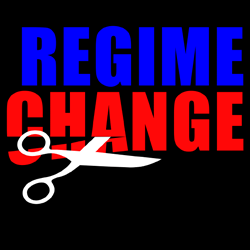
In the months before the meetings of the international Monetary Fund and World Bank in April, the IMF appeared to be in its twilight. Since the Turkish lira collapsed in 2000, there has been a dearth of financial crises (for the IMF to “manage”) and of countries to shower with cheap loans. Also, IMF borrowers from past crises—including Russia, Argentina and Brazil—have repaid their loans ahead of schedule. The IMF’s loan portfolio and operating income are shrinking. By its own estimates, the IMF will sustain operating losses of $600 million over the next three years.
But governmental organizations never get the ax for operating losses. They don’t even die in their sleep. They claim new purposes for themselves and flourish. Just look at the IMF. It was established as part of the 1944 Bretton Woods Agreement and was primarily responsible for extending short-term, subsidized credit to countries experiencing balance-of-payments problems under the postwar pegged exchange-rate system. In 1971, when President Richard Nixon closed the gold window, he signaled the collapse of the Bretton Woods Agreement—and, presumably, the demise of the IMF’s original purpose. But since then the IMF has used every so-called crisis to expand its scope and scale.
The oil crises of the 1970s allowed the institution to reinvent itself. Those shocks required more IMF lending to facilitate—yes, balance-of-payments adjustments. And more lending there was: In real terms IMF lending more than doubled from 1970 to 1975 and increased by 58% from 1975 to 1982.
With the election of Ronald Reagan in 1980 it appeared that the IMF’s crisis-driven opportunism would finally be reined in. Yet with the onset of the Mexican debt crisis more IMF lending was required “to prevent debt crises and bank failures.” That rationale was used by none other than President Reagan, who personally lobbied 400 out of 435 congressmen to obtain approval for a U.S. quota (capital contribution) increase for the IMF. IMF lending ratcheted up again, increasing 27% in real terms during Reagan’s first term in office.
And then came the 1990s, an explosive growth decade for the IMF. Currency crises in Mexico, Russia, Turkey, Brazil, Argentina and Asia expanded the IMF’s balance sheet, enhanced its clout and guaranteed full employment for its bureaucrats.
However, by late 2005 the IMF appeared to be in trouble again. The U.S., which is the IMF’s biggest shareholder, was complaining that IMF Managing Director Rodrigo de Rato was derelict in not labeling China a currency manipulator. The Bush Administration started a whispering operation, implying that De Rato, a former Spanish finance minister, didn’t have the “right stuff ” for IMF’s top job. In addition, the Bush Administration began a diplomatic campaign to turn other industrialized countries against China’s “fixed” exchange-rate regime.
This strategy worked. On Apr. 21 the G-7 finance ministers and central bank governors issued a communiqué. For the first time, the Gang of Seven singled out China and its exchange-rate regime for criticism. According to the G-7 countries, China must part ways with its “fixed” exchange-rate setup and allow the yuan to float. Even though the “fixed” yuan/dollar system has contributed mightily to China’s stellar economic performance for over a decade, the Gang claims that China’s exchange rate is contributing to dangerous global imbalances. To help find a solution to this so-called problem, the IMF was given a new mandate: to start immediate negotiations between countries with the largest trade imbalances (read: the U.S. and China) with the goal of reducing the imbalances (read: raising the value of the Chinese yuan from 12 cents to a much larger sum).
This amazing turn of events would have come as no surprise to the British historian C. Northcote Parkinson. His 1957 classic, Parkinson’s Law, concludes that when the job for which a bureaucracy was organized changes or disappears, the industrious bureaucrats will find new work to do.
Meddling in China’s successful economy and pleasing the IMF’s largest shareholder certainly qualify as hard work. But if De Rato can’t fend off the meddlers, one should hope that China stands its ground. China should not forget how the IMF aggravated the Asian currency crisis nine years ago by demanding that the Indonesian rupiah float. And float it did—downward. Beijing should also not forget former U.S. Secretary of State Lawrence Eagleburger’s assessment of the ensuing political regime change in Indonesia: “We [the U.S. government] were fairly clever in that we supported the IMF as it overthrew [Suharto].”
Author Steve H. Hanke

0 responses on "Regime Change?"